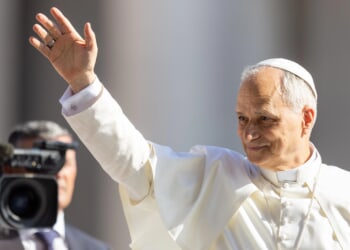CNA Staff, Jul 8, 2025 /
13:54 pm
The Internal Revenue Service (IRS) this week backed off a decades-old rule first established during the Eisenhower administration, declaring for the first time since the 1950s that churches and other nonprofits can openly endorse political candidates without risking their tax-exempt status.
The order resolves a lawsuit launched in August 2024 by a coalition of religious broadcasters, one that challenged the 1954 Johnson Amendment, which says that 501(c)(3) nonprofits may not “participate in or intervene in” political campaigns.
Advocates have argued that the rule shields the nonprofit industry from caustic politics. The National Religious Broadcasters, meanwhile, said in its suit that the tax rule punished churches by “silenc[ing] their speech while providing no realistic alternative for operating in any other fashion.”
In a filing on Monday with the U.S. District Court of the Eastern District of Texas, the IRS agreed with the religious broadcasters in that “communications internal to a house of worship, between the house of worship and its congregation, in connection with religious services” do not run afoul of the amendment’s prohibition on “participating in” campaigns.
The rule “imposes a substantial burden on plaintiffs’ free exercise of religion,” the filing states.
The document points to numerous nonprofits that are allowed to opine on political candidacies even as churches remain barred from doing so. The Johnson Amendment is “not a neutral rule of general applicability,” it says.
Religious entities “cannot fulfill their spiritual duties to teach the full counsel of the Word of God if they fail to address such issues and to inform their listeners how the views of various political candidates compare to the Bible’s position on such matters,” it states.
The Monday filing asked the court to accept the agreement, which will bar the IRS from enforcing the rule. The court accepted the decision shortly after its filing.
The National Religious Broadcasters did not immediately respond to a request for comment on Tuesday.
President Donald Trump said at the 2017 National Prayer Breakfast that he aspired to “get rid of and totally destroy the Johnson Amendment and allow our representatives of faith to speak freely and without fear of retribution.”
When proposed in 1954, the Johnson Amendment was passed with no debate, according to the congressional record.
A 2017 effort in the House of Representatives to repeal the amendment died at committee.


















